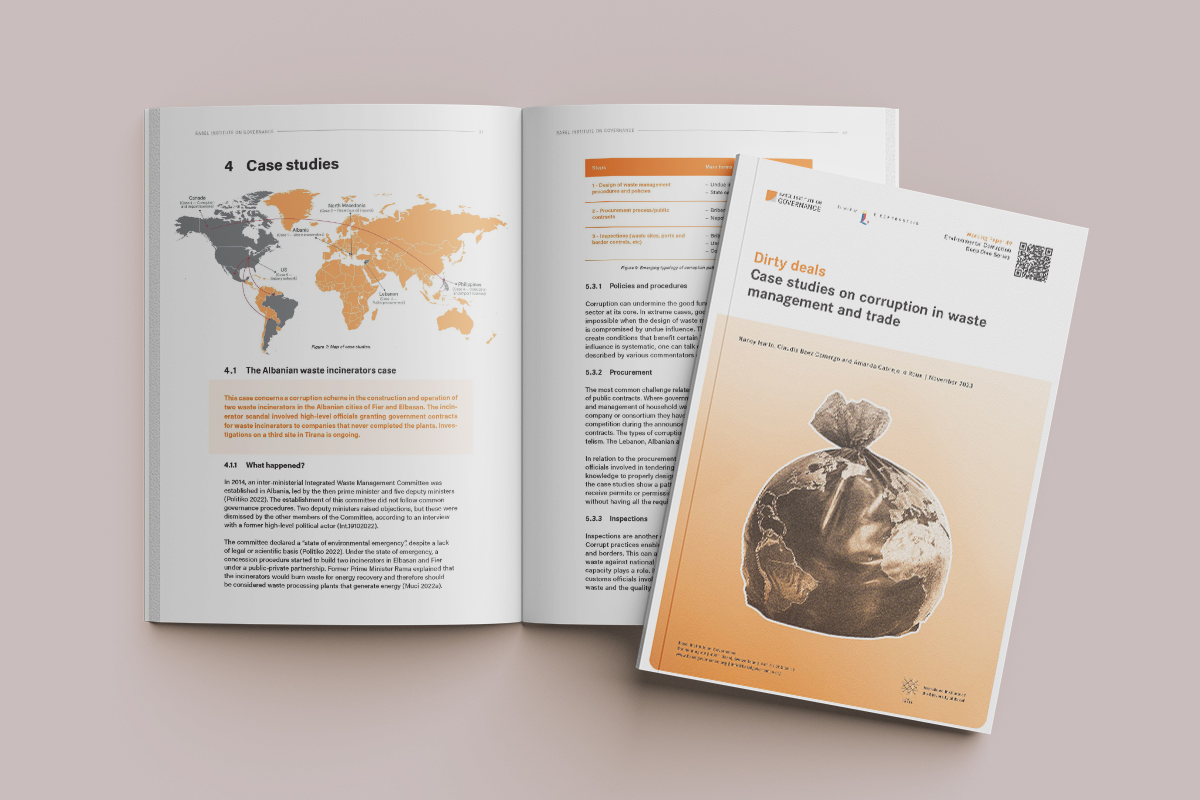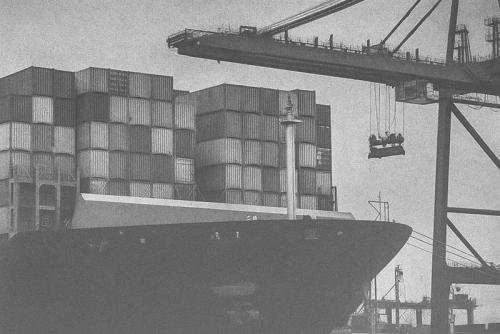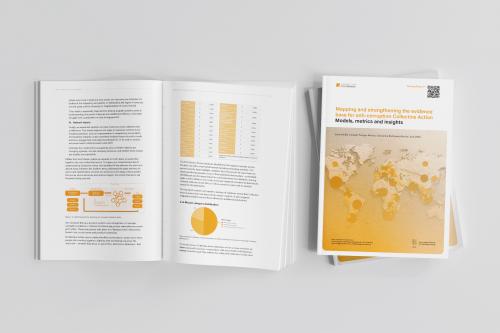New insights into corruption in waste management and trade

The waste management sector provides a vital service for the good functioning of communities and economies and is essential for the protection of the environment and public health. This sector has been under increased scrutiny in recent years. Waste crime has become a growing concern around the world because of its dire impact on the environment and human health.
In addition to challenges related to local waste management, the public has become more aware of the fact that this is an international issue. The transboundary movement of waste may pose risks to the environment and people in countries receiving large quantities of other countries’ waste.
Policies and legal frameworks are evolving to better address waste management challenges. There has also been some research on waste-related crimes. However, the role that corruption plays in facilitating waste crimes is yet to be unpacked and addressed effectively to ensure better governance in this sector.
As part of an ambitious “Environmental Corruption Deep Dive” research project, we decided to look at cases of corruption in waste management and trade. The entire research project is funded by Liechtenstein, a core donor to the Basel Institute and its Green Corruption programme.
The research involves extensive desk research, an analysis of relevant cases and a series of interviews with experts from across sectors.
Legal loopholes and gaps in implementation
In brief, we conclude that complex legal frameworks and their weak implementation open up spaces for criminals to profit from illegally managing or trading in waste. The consequences on the environment and human health can be severe.
We analysed five cases in Albania, Lebanon, North Macedonia, the U.S and Canada–Philippines. We found a variety of corruption risks even in this small initial set of cases. They include the potential for corruption to play a role in:
- influencing policy decisions involving waste management;
- corrupt deals involving the selection of waste management companies linked to powerful elites;
- schemes to gain lucrative waste management contracts through systematic bribery;
- illegal imports of hazardous waste for profit, avoiding or suppressing formal controls.
Complex waste management chains
Graphics in our report highlight different steps of the waste management chain and where corruption risks may arise. Again, these are both complex and numerous. The main areas are:
- Policies and procedures around waste management and trade: Liable to undue influence and state capture.
- Procurement for waste contracts: Like any sector, these are open to bribery, nepotism and favouritism.
- Inspections of waste: As a result of discretion, these are open to bribery, undue influence and collusion.
What to do?
This research is only an initial step to shine a light on potentially risky areas of waste management and trade. However, we note several external factors that make corruption and crime linked to waste management easier to get away with. Ongoing efforts to address these will help to reduce the space for corruption.
These external factors include:
- poor record keeping and a lack of access to information even where records exist;
- low awareness and understanding of the field among public procurement officers, law enforcement and the judiciary;
- insufficient monitoring and lack of inspection and enforcement capacities;
- poor cooperation between environmental, (financial) investigation and other government agencies.
In addition to addressing external factors and potentially reforming the legal frameworks governing waste, we and our interviewees identify a few basic steps to start addressing corruption risks.
- More research and corruption risk assessments on waste management supply chains.
- Greater investment in preventive measures, starting with digitalising administrative processes.
- More joined-up enforcement of waste management legislation through inter-agency cooperation and joint investigations.
- Extending wider transparency and accountability measures like open data and whistleblowing systems to the waste management field.
- Targeted capacity building and awareness raising for regulators and law enforcement.
- Collective Action initiatives between public, private and civil society actors in the waste management field, to build trust and understanding, share good practices and co-develop self-regulatory standards.
Overall, more research is urgently needed to understand both the role of corruption in undermining proper waste management and trade, and the potential consequences of mitigation measures.






